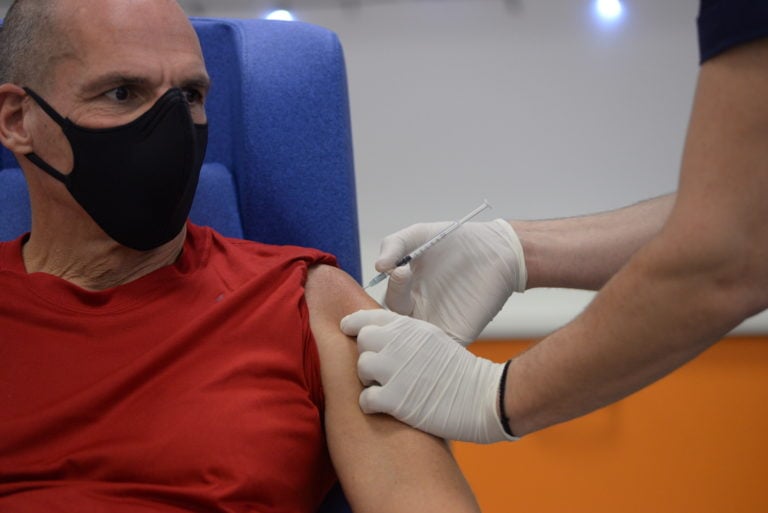A 32-year female oncologist in Greece has reportedly developed an allergic reaction after she was administered the Pfizer/ BioNTech vaccine.
The doctor was vaccinated on Monday at Attikon Hospital in Athens and was the first person to have presented with such a reaction in the country.
She was admitted to the hospital for the night for precautionary reasons.
The next day she gave an anonymous interview on MEGA Channel TV saying she developed rapid heart palpitations and was given antihistamines.
“There are many allergic reactions to many other medicines. Unfortunately, it happened to to me,” she said adding that she feels “depressed and tired”, due to the antihistamines. “These bring drowsiness; it is not something unexpected. I did not have a history of allergies so I was not scared. People should know that it was just a mild allergic reaction.”
In total, 471 people have been inoculated in Greece that has received 83,800 doses of the Pfizer/BioNTech vaccine on Tuesday and more deliveries are expected every week.
According to authorities 419,250 doses will be delivered to the country by the end of January and another 333,450 doses will arrive by the end of February so that by the end of March, Greece can see 1,255,800 doses administered.
Vaccines manufactured by Moderna and AstraZeneca pharmaceuticals are also to arrive in Greece once approved by EU authorities.
So far, Pfizer and Moderna have reported the most common side-effects to the EU Food and Drug Administration which normally clear in a couple of days.
These include low fever, headache, fatigue, muscle and joint pain or chills, as well as soreness around the area of the vaccine, especially after the second dose. Other, more severe reactions, are extremely rare, scientists say.

Meanwhile, the Greek government is facing criticism from the doctors community following the big numbers of 45 government officials getting the jab over the most vulnerable health care workers.
On Tuesday, government spokesman Stelios Petsas said the priority list will ultimately include 126 government officials, who will get the shot by the end of January.
Finally, Greece’s active infections sit at approximately 8,500, with an estimated 2,000 cases in the greater Athens area and around 1,600 in Thessaloniki as Tuesday saw yet another spike in numbers.
The country hit the thousands again, reaching 1,047 new coronavirus cases and 58 deaths with 458 patients currently in the ICU.
